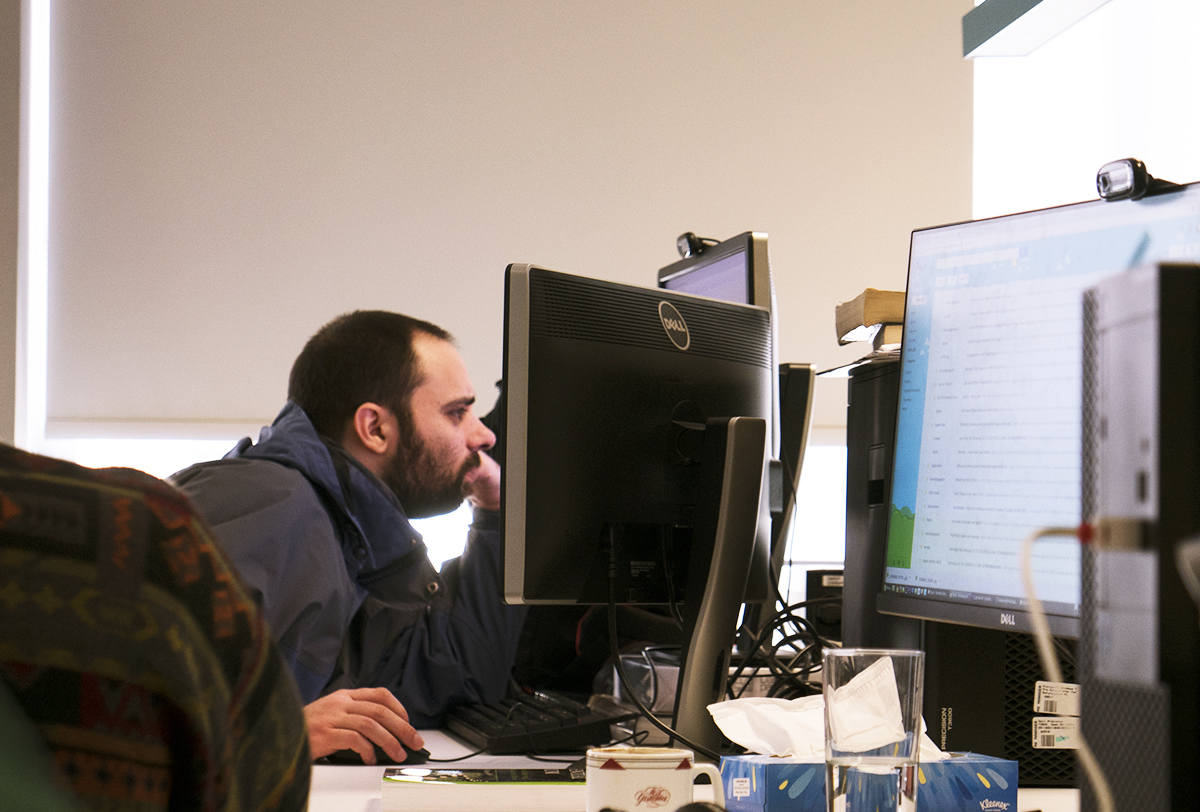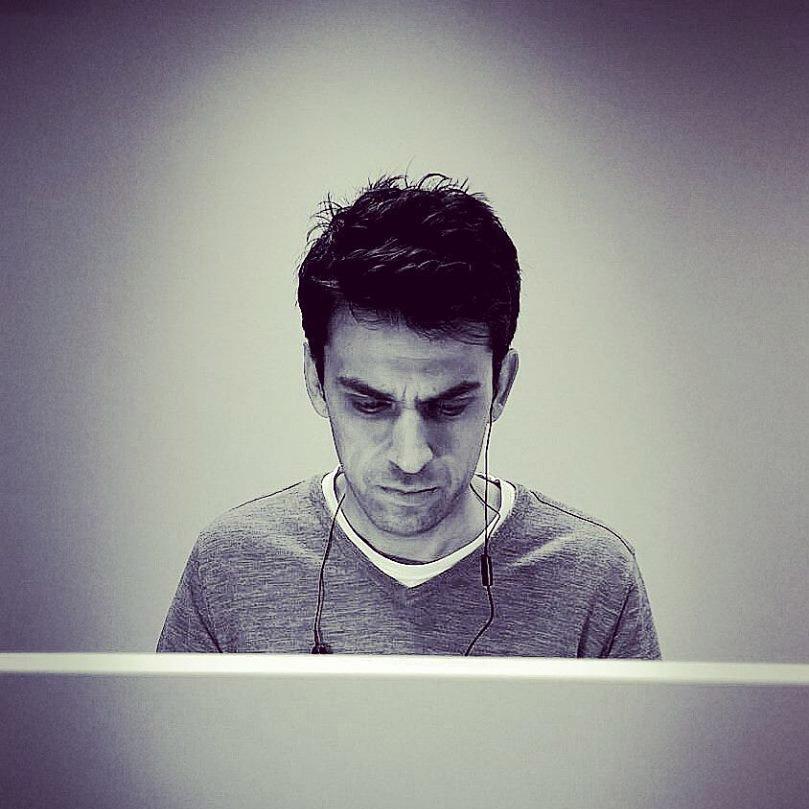Startup life: Q&A with Dimitrios Zacharatos from Psycholate
Designers and developers, developers and designers, it’ll never work. Or so they say.
But what about when a startup’s success rests heavily on them coming together. Searching for a metaphor, sometimes the situation can be akin to the plot of cult classic Con Air, or Suicide Squad. A bunch of contrasting characters thrown together to save mankind – or in this case a business, from destruction.
Perhaps I’m over-dramatizing things. But trust me, I see developers and designers go at each other. It’s not pretty. Thankfully such clashes are rare at Psycholate, an online psychometric test and questionnaire publishing company and one of the fast-growing startups in the Starttech portfolio.
The company has very much already graduated from startup stage into an increasingly successful scale-up. So what’s the secret to keeping the peace between the designer and developer camps? And taking your business to the next level, i.e. from startup to scale-up?

We’re happy you asked. Read this week’s Startup life Q&A series, where we sit down and try to have a normal chat like human beings with Dimitrios Zacharatos, Quantitative methodologist at Psycholate, to find out.
Q1: So Dimitris, how would you briefly describe startup life? Or for want of a better expression, what’s it like working at a software startup like Psycholate?
I cannot describe start up life in general. I am more entitled to say something about my experiences. A brief description: It can be fun.
Q2: What do you enjoy most about your role?
Having the freedom of choice of how to solve a problem. I have the freedom to employ new metrics, measures, statistical model evaluations and so on and so forth. Nobody will tell me off if I do something extra, if I add up a module to improve upon existing procedures. And this can be greater fun than you may expect. Recently I am working with statistical machine learning for forecasts simulations and modeling. I have already used some machine learning algorithms for a customer and I am planning to repeat that. It is a process of a trial and error.
In any case, I am searching multiple solutions for the same problem. This is exactly what I am doing and the fun of it is that I am able to do new things.
Q3: Psycholate has been in operation for 6 years now. How long have you been involved and how have you helped in its development?
Two years and a couple of months. Regarding development, I am working in automation in an effort to make things run fast, efficiently with minimal human intervention. Human intervention increases error risk. For that purpose I automate and I provide relevant documentation, and help files for these procedures so anyone can take advantage the new code.
In an ideal world I fantasize a code able to identify the data types, the problem, and then go on to choose the appropriate method of analysis while I am sitting back observing the process (OK, now you are scaring me – Ed). Obviously I cannot see how that can happen anytime soon but it is possible to make steps on that direction.
Q4: Great. Now, how about pain points and challenges. What makes your life difficult at work? (apart from dealing with colleagues who do not fill up the water dispenser – Ed)
Nothing. Some people like to be lazy, but I won’t complain about that as it’s not my problem. I have to drink water or I’ll dehydrate! (you’re the first person I’ve met in my life with nothing to complain about at work. I salute you! – Ed)
Q5: Developers are notorious for being bad communicators and generally try to avoid human interactions. What do you say about that?
I do not consider myself a developer. I introduce myself as a psychologist. Then people assume that I know about counselling or clinical psychology and they elaborate their problems (that must be amusing – Ed).
Regarding the issue of communication, people in general have a deficiency in communication skills. Chomsky for instance points to theories suggesting that language was not developed as a means of communication but as a means of thought. From that, without being a linguist, I can extrapolate that the causes of language make it an inefficient communication tool. Language as such is not enough. Efficient communication is a product of hard work and education.
The most efficient language is the language of mathematics. Physicists argue that they can explain the universe with a set of equations.
I think the Platonic idea is relevant. Plato believed that people do not experience reality as such, but what they experience, is a representation of reality. I think modern science will agree on that to some extent. However Plato went further in arguing that reality can be best experienced through mathematics. I find it true if not interesting. Take for example Aristotle. How many today laugh about his argument that thought originates in the heart. Yet nobody laughs with the Euclidean geometry or the Pythagorean theorem today. On the contrary these ideas are respected. The methodology and the language of mathematics I think can provide us with understanding that can withstand the test of time.
Q6: What advice would you give to non-developers in terms of how to get the best out of developer colleagues – apart from leave them alone to work by themselves?
See… I told you, when you introduce yourself as a psychologist people ask for advice. I cannot give advice on that. Every individual is different (clearly a cop out, but OK, fair enough – Ed).
Q7: When you’re not coding away to fine-tune Psycholate’s systems, what do you like to do?
I like watching lectures, movies, taking pictures. It is difficult to enumerate. Let’s say that I do not have a dark side hidden somewhere.
Q8: What do you think are the key factors behind Psycholate’s success in its relatively short life so far?
There is no competition in Greece, and very little competition abroad. Despite that, I can see that customers are respected here. We provide custom solutions which by definition cannot be easily found elsewhere. In addition we want to improve our platform. Personally, I use customer requests to create automated procedures that can be used for other customers. The code I am writing is based on that idea and I think that everybody shares that idea.
Customization means that a portion of the product is generated by customer ideas and needs. The question you might ask is, do you have the right customers for the task? In other words, can the customer needs be generalized to the needs of the population of customers? I think yes, since customers are companies with market understanding, meaning that they are able to generate a profit by using our product.
For that reason I believe we have a symbiotic relationship with the customers, we depend on them and they depend on us. This relationship generates trust and mutual respect.
Another issue is that me majority of our customers are not in Greece. Not depending on the Greek market is an asset.
I feel that the future is information, and products developed here are about that. Nonetheless, we try to adopt a holistic approach. We do not only provide the means to collect data in a customized manner, we are also provide means to analyse and disseminate this information. That’s one of the purposes of statistics and this is what I am supposed to be doing here.
Of course the story does not end there. Our ultimate purpose is to automate this holistic approach in an intelligent way. That will allow us to provide services to more customers.
Q9: Which tools do you use daily and do you have any secret tips and tricks, which boost your success rate?
I work in R. I have huge amounts of RAM in my PC and I was told to expect an upgrade soon.
Q10: Are there any other productivity and/or work-life balance tips and hacks you’d like to share with us?
I don’t think that there is a constant determining that history of the human race will always improve. There are people working towards improvement, however it all depends on numbers balances and opposing forces. Don’t forget that the collapse of the Roman empire left us with the middle ages. If we all work together we can make a difference. First however we need to understand what is going on around us.
This is not a trick nor a hack, its an issue.
Q11: What would you say to anyone considering getting involved in a startup?
Every startup is different. Start up people are different, the mentality is different. When I come here I don’t feel I live in Greece, and I am a person who lived abroad for a decade.
Q12: Intriguing stuff. Now, time for a few quick fire questions. What’s the last message you sent on Slack (we want the truth – Ed)?
Poems. Not mine.
Q13: What’s your favourite film (apart from Psycho obviously)?
The vortex from Nikos Koundouros. Koundouros is a director able to narrate through imagery. In this movie dialogues are minimal. The viewer follows the plot through the imagery.
Q14: Donuts or cookies?
What does it have to do with Koundouros?
Q15: Give us a crash course guide in how to spot a psycho?
I worked as a psychologist in the Greek army, and I have seen people that it was frightening to deal with them. Yet my job was to help these people. For that reason psycho is a term that I would not use. That would not help me or them at the time.
Q16: When was the last time you did something for the first time?
A couple of minutes ago I created my first support vector machine model and at the moment it does not look promising. We will see.
Q17: What are your top work-related or personal book recommendations?
Andy Field has written some very nice books on introductory statistics. Howell has also written several editions on applied statistics. Why would anybody read about statistics in his spare time though?
Q18: If you could start your own business/startup, what would it be (it’s OK, you can tell me I won’t steal it or tell anyone about it – Ed)?
I have unfinished things to do here.
Q19: If you had 60 seconds in an elevator with an investor what would you say to persuade them to invest their money in Psycholate?
I would have to improvise.
Q20: And if you had just 30 seconds to convince a large potential client to get Psycholate, what would you say?
We have people in our team more qualified for this line of work. This is not my area.
Q21: What’s your life motto, if you have one?
Difficult question. I think what is the most important aspect in life is consciousness. Consciousness dependents on some short of knowledge, if you are more aware of yourself and your surroundings you may argue that you are more conscious. In a sense awareness is a survival mechanism. You are an easy pray when you are asleep aren’t you?
Perhaps this what we are striving for, more awareness. I do not want to be aware being in pain however, what I surely want is to be aware how to alleviate my pain. In any case everything depends on awareness, without it neither the problem nor the solution are possible.
Thanks Dimitrios, it has been a pleasure. Don’t forget to refill the water dispenser now OK?
